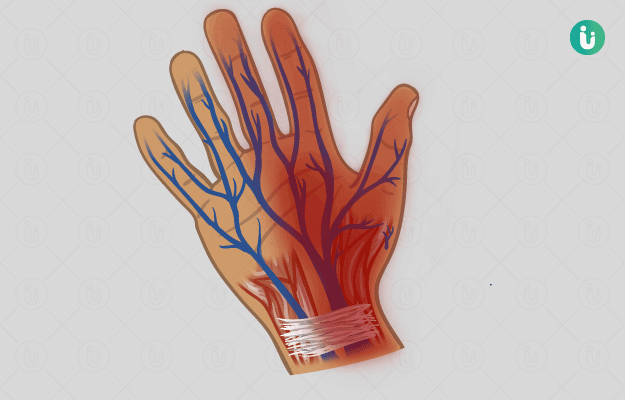What is nerve weakness?
Nerves are responsible for transmission of signals in your body. Nerve disorders or injuries to the nerves affect their normal working and result in nerve weakness. Nerve weakness affects a wide range of functioning of your body parts and can result in disabling conditions.
What are its main signs and symptoms?
The main signs and symptoms of nerve weakness are as follows:
- Pain
- Pricking or tickling sensation
- Numbness
- Loss of sensation
- Fatigue
- Muscular weakness
- Foot drop (inability to elevate the front part of the foot)
What are the main causes?
There can be a number of underlying causes for nerve weakness. These are as follows:
- Nerve injury
- Diabetes
- HIV infection
- Multiple sclerosis
- Cancer treatment
- Nerve compression due to tumour or vasculature (blood vessels)
- Parkinson’s disease
- Stroke
- Leprosy
How is it diagnosed and treated?
The signs and symptoms indicate the involvement of nervous system. However, the symptoms of nerve weakness are not very specific; hence, clinical diagnosis is very critical. Study of your medical, family, and occupational history can provide important information to the doctor that can assist in diagnosing the underlying cause. The following diagnostic tests are carried out:
- Electrodiagnostic tests
- Sensory and motor nerve conduction
- F response
- H reflex
- Needle Electromyography
- Blood Investigation for
- Autoimmune disorders
- HIV
- CSF examination (cerebrospinal fluid)
Nerve weakness can be a result of one or more underlying conditions or diseases. Hence, the treatment mainly focuses on curing the underlying disease. Following treatment options are available:
Medications which control pain:
- Opioids
- Non-Steroidal Anti-inflammatory Drugs (NSAIDS)
- Capsaicin patches
- Anti-Depressants.
- Kinetic therapy for nerve repair and stimulation.
- Electrostimulation:
- Transcutaneous electrostimulation (TCES)
- Electroacupuncture
- Magnetotherapy: Pulsed magnetic field regenerates nerves by enzymatic stimulation, increased blood circulation.
- Bio Laser stimulation: Laser radiations can be used to repair the nerves.
- Facial neuromuscular restraining techniques to treat facial paralysis.
- Physical therapy exercises to strengthen muscles.
- Yoga and Meditation to calm down the nerves and strengthen them.
- Surgical intervention.
To manage nerve weakness, it is important to have a healthy lifestyle and consume a balanced diet.

 Doctors for Nerve Weakness
Doctors for Nerve Weakness  OTC Medicines for Nerve Weakness
OTC Medicines for Nerve Weakness
 Lab tests for Nerve Weakness
Lab tests for Nerve Weakness Nerve Weakness articles
Nerve Weakness articles

 Home Remedies for Nerve Weakness
Home Remedies for Nerve Weakness







 Editorial Team
Editorial Team











